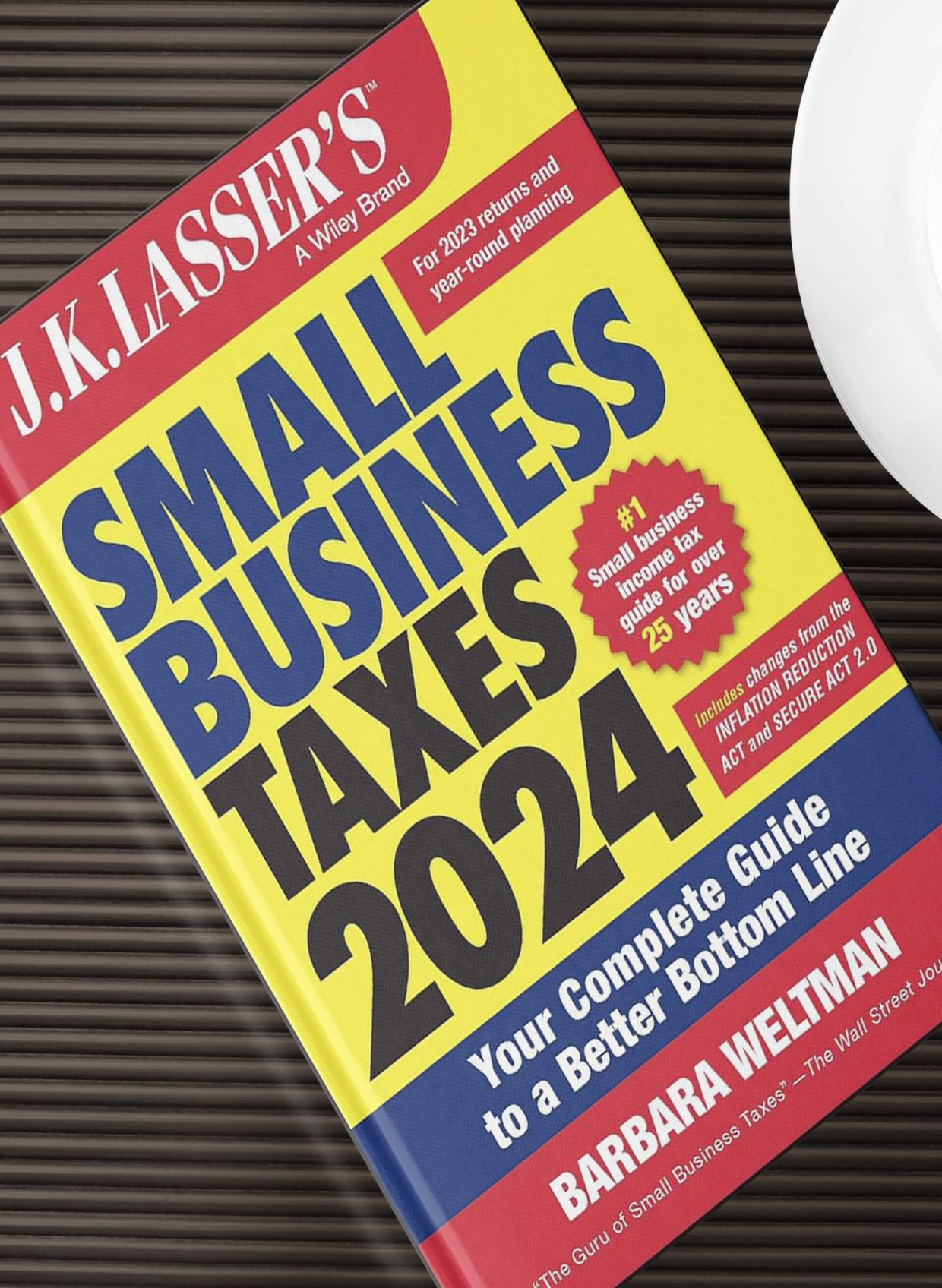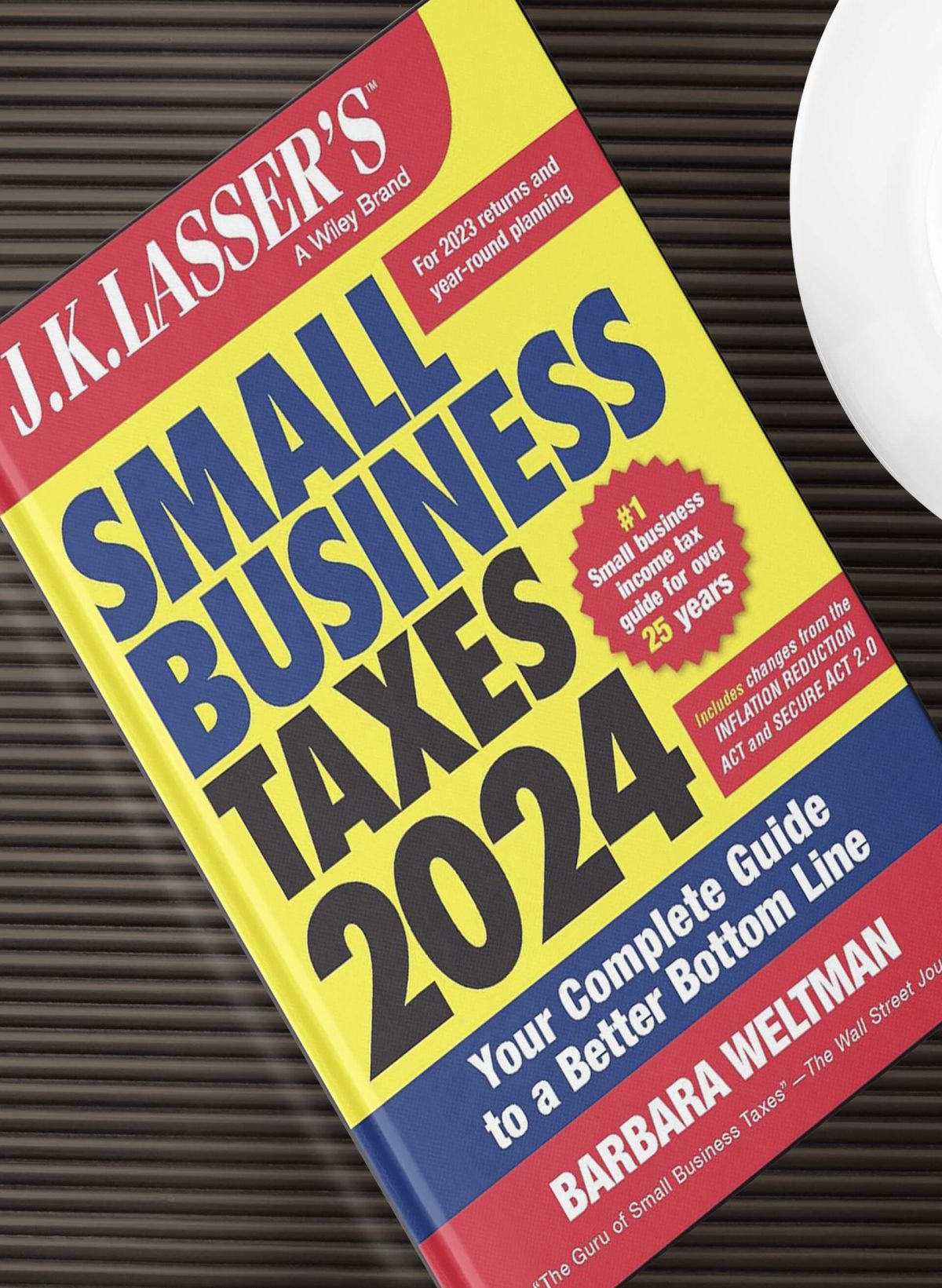
J.K. Lasser's Small Business Taxes 2024

For more than 25 years, this tax book for small businesses has been the go-to guide for owners and their tax advisers. The 2024 edition for preparing 2023 returns as well as tax planning for 2024 has been updated to incorporate green energy changes from the Inflation Reduction Act, retirement plan changes from SECURE Act 2.0, and other new laws, as well as court decisions and IRS pronouncements.
Why small business owners need a tax book
If you’re like the vast majority of small business owners (about 90%), you use a CPA or other tax pro to prepare your business returns. You may even work with tax experts on specific matters, such as inventory management, payroll, and succession planning. That’s great, but for small businesses, continually asking for advice on every matter that comes up can be too pricey.
It’s my belief that whether you’re just starting out or have been running your business for a long time, all small business owners need to be informed about taxes and can’t rely solely on tax professionals. The reason: owners, not their accountants, software, or AI, run their businesses and make decisions impacted by taxes on a daily basis.
- What are the tax differences for entity types (e.g., S corporation versus LLC)?
- Should you hire employees or engage independent contractors?
- How much should you pay yourself and how to do it?
- Should you buy or lease equipment?
- Should you go green, which may entitle you to special tax deductions or credits?
- What type of financing should be used to start or grow a business?
- Who should own the truck—the owner or the company?
- What are the consequences of offering your employees a particular type of health care arrangement, or opting not to offer any medical coverage?
- What are the tax implications of various employee benefit plans and how do you offer them without messing up and incurring penalties?
- What are the tax and practical implications of operating a business from home?
- What happens if you operate in more than one state?
You may get information from your tax pro that’s helpful to your business. But you can also educate yourself by reading my book—without incurring professional fees. At a minimum, you’ll be able to ask your CPA or other tax adviser the right questions to protect your business and cut your tax bill.
Why tax professionals need this book
As a tax pro, I’m assuming you are aware of tax rules impacting clients that are small businesses and their owners. The book goes beyond tax rules to provide a holistic approach to various matters that will help tax advisers provide the best guidance for clients. For example, it’s one thing to understand the tax implications of debt versus equity financing. It’s another to appreciate the practical implications of these choices of which clients should be made aware.
What the book includes
In addition to reflecting all cost-of-living adjustments to various limitations and eligibility requirements for tax breaks, the 2024 edition covers the tax changes from the from the Inflation Reduction Act of 2022 and SECURE Act 2.0 that impact 2023 returns, as well as changes from older legislation that became effective in 2023. (Not all of the changes from older legislation are favorable, such as a return in 2023 to the 50% limit for a deduction for business meals.)
The book also includes:
- “Looking ahead” boxes throughout the book to alert you to rule changes effective starting in 2024 or later so you can plan ahead.
- Special topics, such as multistate operations, sideline businesses, and special considerations for the year in which a business starts or closes, are explained in basic terms.
- An explanation of Business Ownership Information Reporting that owners of certain types of new or existing businesses must comply with to avoid serious penalties. Beginning January 1, 2024, this rule requires filing information online with the Treasury’s Financial Crimes (FinCEN) Enforcement Network.
While the book primarily focuses on federal income taxes, it includes information on federal employment and excise taxes, as well as some state and local tax matters. It lists information returns that businesses may be required to file, plus when and where to do it. And it discusses how to deal with the tax professionals and the IRS.
What’s to come
The tax law doesn’t stand still. There are always new laws, cases, and rulings that arise after the publication of the book. Congress may enact measures to impact 2023 returns or 2024 tax planning before the end of this year (last year’s Consolidated Appropriations Act, 2023, was signed into law on December 29, 2023); some are saying a bill may even come after the new year.
Mark your calendar
Calendar-year partnerships, multi-member limited liability companies, and S corporations must file their 2023 federal income tax returns by March 15, 2024. Owners of pass-through entities as well as calendar year C corporations must file their 2023 income tax returns, as well as pay their first installment of estimated taxes for 2024, by April 15, 2024 (April 17th for those in Maine and Massachusetts).




